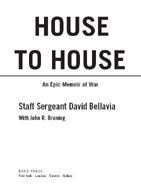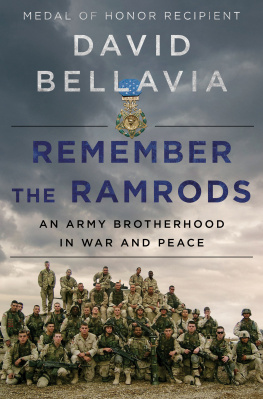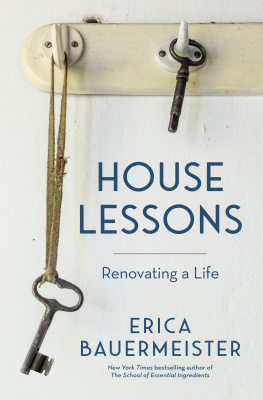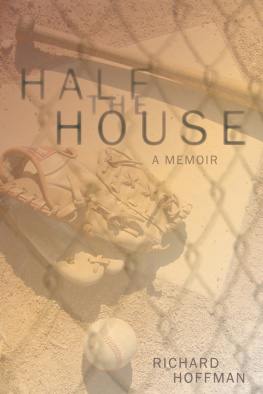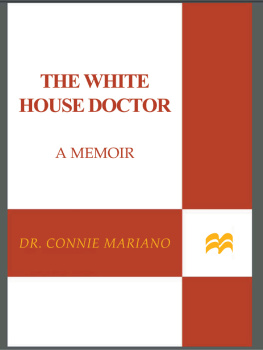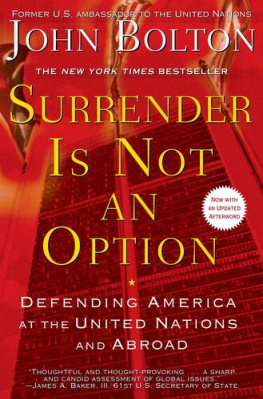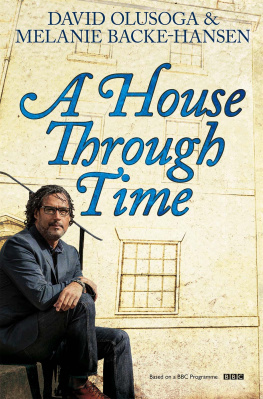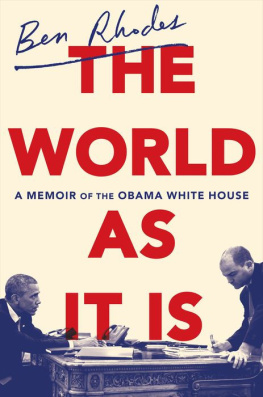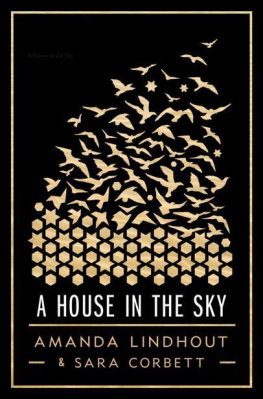David Bellavia - House to House: An Epic Memoir of War
Here you can read online David Bellavia - House to House: An Epic Memoir of War full text of the book (entire story) in english for free. Download pdf and epub, get meaning, cover and reviews about this ebook. year: 2008, publisher: Pocket Star, genre: Non-fiction. Description of the work, (preface) as well as reviews are available. Best literature library LitArk.com created for fans of good reading and offers a wide selection of genres:
Romance novel
Science fiction
Adventure
Detective
Science
History
Home and family
Prose
Art
Politics
Computer
Non-fiction
Religion
Business
Children
Humor
Choose a favorite category and find really read worthwhile books. Enjoy immersion in the world of imagination, feel the emotions of the characters or learn something new for yourself, make an fascinating discovery.
- Book:House to House: An Epic Memoir of War
- Author:
- Publisher:Pocket Star
- Genre:
- Year:2008
- Rating:3 / 5
- Favourites:Add to favourites
- Your mark:
- 60
- 1
- 2
- 3
- 4
- 5
House to House: An Epic Memoir of War: summary, description and annotation
We offer to read an annotation, description, summary or preface (depends on what the author of the book "House to House: An Epic Memoir of War" wrote himself). If you haven't found the necessary information about the book — write in the comments, we will try to find it.
House to House: An Epic Memoir of War — read online for free the complete book (whole text) full work
Below is the text of the book, divided by pages. System saving the place of the last page read, allows you to conveniently read the book "House to House: An Epic Memoir of War" online for free, without having to search again every time where you left off. Put a bookmark, and you can go to the page where you finished reading at any time.
Font size:
Interval:
Bookmark:

Advance Praise for House to House
House to House is a charged and honestly stark view down the rifle-sights of an infantryman during a crucial period in Iraq. Bellavia is our man with boots on the ground. To read this book is to know intimately the daily grind and danger of men at war.
Anthony Swofford, author of Jarhead
House to House is a terrifically realistic account of the hardest kind of combat known to man. Staff Sergeant Bellavia puts you right there with his men as they see it. This is a must read.
Gunnery Sgt. Jack Coughlin, USMC (Ret.), author of Shooter: The Autobiography of the Top-Ranked Marine Sniper
Bellavia is the legend from Iraq. He went house-to-house in Fallujah killing the terroristsalone! MUST reading for all grunts.
Bing West, author of No True Glory
House to House is a rare and gripping account of frontline combat. While many who contemplate the nature of war focus on technological change, Bellavias account reveals the continuities of close combat. Bellavia illuminates the human, psychological, emotional, and sensory experience of combat at the level of leadership that wins battlesthe infantry squad leader. Bellavias story unfolds in a compelling narrative that helps readers understand what it is like to be in battle and what it is like to be a soldier.
Colonel H. R. McMaster, author of Dereliction of Duty



FREE PRESS
A Division of Simon & Schuster, Inc.
1230 Avenue of the Americas
New York, NY 10020
Copyright 2007 by David Bellavia
All rights reserved, including the right to reproduce this book or portions thereof in any form whatsoever. For information address Free Press Subsidiary Rights Department, 1230 Avenue of the Americas, New York, NY 10020
FREE PRESS and colophon are trademarks of Simon & Schuster, Inc.
Library of Congress Cataloging-in-Publication Data
Bellavia, David.
House to house: an epic memoir of war / David Bellavia with John Bruning.
p. cm.
1. Iraq War, 2003Personal narratives, American. 2. Bellavia, David. I. Bruning, John R. II. Title.
DS79.76.B4465 2007
956.7044'3092dc22
[B] 2007010697
ISBN-13: 978-1-4165-7184-1
ISBN-10: 1-4165-7184-1
Visit us on the World Wide Web:
http://www.SimonSays.com
For the Ramrods of the 2nd Battalion, 2nd Infantry Regiment

Noli Me Tangere
Do Not Touch Me
Contents
Authors Note
This is a work of nonfiction. Events, actions, experiences, and their consequences have been faithfully retold as I remembered them and based on interviews with a number of the participants. Events to which I was not an eyewitness have been recounted based on documented accounts and interviews. Every event within the book took place, but a few have been reordered or combined for narrative clarity. Conversations presented in dialogue form have been re-created from my memory of them but are not intended to represent a word-for-word documentation; rather, they are intended to invoke the essence of what was said.
HOUSE TO HOUSE
PROLOGUE The Coffins of Muqdadiyah April 9, 2004 Diyala Province, IraqDust cakes our faces, invades our sinuses, and stings our eyes. The heat bakes the moisture from us with utter relentlessness. Our body temperatures hover at a hundred and three. Our ears ring. On the edge of heat exhaustion, we get dizzy as our stomachs heave.
We have the spastic shits, with stabs of pain as our guts liquefy thanks to the menagerie of local bacteria. Inside our bases filthy outhouses, swarms of flies crawl over us. Without ventilation, those outhouses are furnaces, pungent with the acrid smell of well-cooked urine.
All this, and we get shot at, too.
Welcome to the infantry. This is our day, our job. It sucks, and we hate it, but we endure for two reasons. First, there is nobility and purpose in our lives. We are Americas warrior class. We protect; we avenge. Second, every moment in the infantry is a test. If we measure up to the worst days, such as this one, it proves we stand a breed apart from all other men.
Where we work, there are no cubicles. There are no break rooms. Ties are foreign objects; we commute in armored fighting vehicles.
Our workplace is not some sterile office or humming factory. It is a stretch of desolate highway in a vast and empty land. A guard tower burns in the background. Shattered bodies litter the ground around us. Vacant corpse eyes, bulging and horror-struck, stare back at us. The stench of burned flesh is thick in our nostrils. This was once an Iraqi Civil Defense Corps (ICDC) checkpoint, designed to regulate traffic in and out of Muqdadiyah, one of the key cities in the Diyala Province. Thanks to a surprise attack launched earlier in the morning, it is nothing more than a funeral pyre. We arrived too late to help, and our earnest but untrained allies died horribly as the insurgents swept over them. One Iraqi soldier took a direct hit from a rocket-propelled grenade (RPG). All thats left of him are his boots and soggy piles of bloody meat splattered around the guard tower.
This is our workplace. We began to acclimate to such horrors right after arriving in the country. While on our second patrol in Iraq, a civilian candy truck tried to merge with a column of our armored vehicles, only to get run over and squashed. The occupants were smashed beyond recognition. Our first sight of death was a man and his wife both ripped open and dismembered, their intestines strewn across shattered boxes of candy bars. The entire platoon hadnt eaten for twenty-four hours. We stopped, and as we stood guard around the wreckage, we grew increasingly hungry. Finally, I stole a few nibbles from one of the cleaner candy bars. Others wiped away the gore and fuel from the wrappers and joined me.
That was three weeks ago. Were veterans now, proud that we can stomach such sights and still carry out our job. It is this misery that defines us, gives us our identity. It also cleaves infantrymen apart from everyone else in uniform. Some call it arrogance. So be it. We call it pride since we believe fervently in what we are doing.
Check it out, calls Staff Sergeant Colin Fitts. He points to a Humvee rolling up the highway toward our battlefield.
The two of us pause and watch the rig approach. Fitts is a Mississippian with a gravelly voice and intense eyes. Were so close that long ago I learned to tell every entertaining story from his life in more detail than he can, and he can do the same with mine.
The Humvee screeches to a stop a short distance from us. In the right seat sits a clean-cut major. With his tiny, wire-rimmed glasses, he looks like an accountant in Kevlar. Hes so clean that I doubt hes more than a few hours removed from his last shower. I cant even remember when I last had one. Weve been making do with whores bathsbaby wipes to the armpits and private partssince running water is a luxury not bestowed upon the infantry.
Right here we have the dichotomy that defines our military. We all wear the same uniform, but we might as well be from two different armies. Were the frontline bullet-chewers. This officer embodies all that we despise about the other half. He is scrubbed; we are filthy. His skin has rarely seen the sun. We are sunburned and leathery. He is well fed and a bit on the pudgy side. Most of our platoon has lost over ten pounds since getting to Diyala. Maybe thats because when we get a chance to eat, the appetite doesnt stick around long. Our mess hall is an abandoned Iraqi morgue.
Next pageFont size:
Interval:
Bookmark:
Similar books «House to House: An Epic Memoir of War»
Look at similar books to House to House: An Epic Memoir of War. We have selected literature similar in name and meaning in the hope of providing readers with more options to find new, interesting, not yet read works.
Discussion, reviews of the book House to House: An Epic Memoir of War and just readers' own opinions. Leave your comments, write what you think about the work, its meaning or the main characters. Specify what exactly you liked and what you didn't like, and why you think so.

